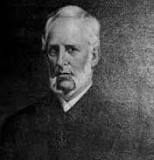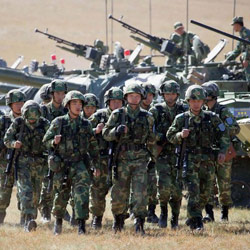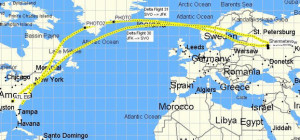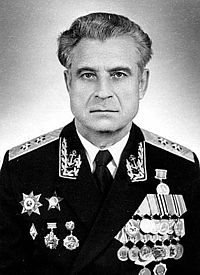 Every parting is a form of death, as every reunion is a type of heaven
Every parting is a form of death, as every reunion is a type of heaven
-Tryon Edwards
American Theologian, 1809-1894
Cecilia took her backpack, and walked to the front of the plane, eager to stretch her back and legs in preparation for the long flight ahead. The flight attendant smiled at her as she crossed the threshold, reminding her that she needed to return to the plane within the next 30 minutes. Cecilia nodded, and walked through the chute to the terminal. The usual sights and smells greeted her. She wondered if the reason for this consistency was to give the traveler a feeling of comfort and reassurance as they traveled about the globe. Her first step was the ladies room, where she peed and ran a comb through her hair, mashed down in the back from sleeping with her head pressed against the seat back. Then she went to the news stand and picked up a copy of  The Economist. On the cover was a
The Economist. On the cover was a  picture nearly identical to the one Colonel Oates had featured in his holographic presentation. In large letters, the cover shouted “Will The Next World War Be Over Water?”
picture nearly identical to the one Colonel Oates had featured in his holographic presentation. In large letters, the cover shouted “Will The Next World War Be Over Water?”
Alarmed, Cecilia turned to the page referenced on the cover. Sure enough, the reporter quoted “unnamed US intelligence sources” describing in detail the buildup south of the Amur River, and citing the extreme water shortages in China as the ‘real’ reason for the massing troups. Cecilia pulled out her cellphone, which she’d turned off prior to the plane’s Miami departure. There was a text from Mirabel, wishing her a good trip. When she checked her e-mail, there were no messages. Undoubtedly there were meetings currently being held in the Pentagon, discussing the leaks and trying to figure out what to do next. “Why is it people just can’t learn to keep their mouths shut?” Cecilia thought to herself. But then she looked up at the clock, realizing she only had another 10 minutes or so of terminal time left. She went back to the news stand, bought a few snacks for the trip, and returned to the 787 and her seat.
The plane was nearly full when it took off at 11 am. Once in the air, tray tables went down and Ppads came out for nearly every passenger. It was amazing what these little devices’ capabilities were these days. Cecilia couldn’t function without hers. She opened the cover, and did a quick scan of the three media sources she trusted the most for honest reporting: NPR, The Atlantic and Slate. None of them referenced the article in The Economist, which was something of a relief. “Maybe there’s time to pull off the President’s strategy before any shooting starts,” Cecilia mused.
By 2 in the afternoon, lunch had been served, and the passengers were settling in for the  long haul over the Atlantic to Moscow. Cecilia’s prior nap left her refreshed enough to spend the afternoon working on her papers prior to the dinner meal, served at 7 along with a small, plastic dose of a mediocre champagne. The flight attendant walked up and down the aisle, continuing to refill the thimble-sized cup until Cecilia realized she’d had a bit too much. She packed up her materials in her backpack, and shoved it under the seat in front of her. She pulled down the sun shade, turned over to face the bulkhead, and fell fast asleep.
long haul over the Atlantic to Moscow. Cecilia’s prior nap left her refreshed enough to spend the afternoon working on her papers prior to the dinner meal, served at 7 along with a small, plastic dose of a mediocre champagne. The flight attendant walked up and down the aisle, continuing to refill the thimble-sized cup until Cecilia realized she’d had a bit too much. She packed up her materials in her backpack, and shoved it under the seat in front of her. She pulled down the sun shade, turned over to face the bulkhead, and fell fast asleep.
Her mind returned to another flight 10 years’ prior, when she and her grandfather made the return journey to Cuba. Manuel, the Consul’s Chief of Staff had come through as promised with an official travel visa for her grandfather’s return to the homeland. They flew a charter direct from Miami to Havana. This time there was no Ánibal the cab driver to pick them up and take them to Camaguey. Instead, Cecilia had arranged for a rental car from Havanaautos.com and drove the  VW Passat to Camaguey herself.
VW Passat to Camaguey herself.
As Abuelo and Cecilia walked up the sidewalk to Abuela Cecilia’s  B&B, Cecilia helped Abuelo up the steps. She was somewhat concerned that seeing his old flame after all these years might be too much for his fragile heart. In the two months’ between their conversation on the porch that day and now, his health had significantly deteriorated. But seeing Abuela Cecilia after all these years seemed to bring life back to her grandfather’s face. They approached each other slowly, and both opened their arms and enfolded the other. Tears of joy sprang from both their faces, and they immediately began to speak to one another in rapid Spanish. As Manuel and Cecilia watched silently, it was obvious the two of them were reconnecting their lives after nearly 60 years’ separation.
B&B, Cecilia helped Abuelo up the steps. She was somewhat concerned that seeing his old flame after all these years might be too much for his fragile heart. In the two months’ between their conversation on the porch that day and now, his health had significantly deteriorated. But seeing Abuela Cecilia after all these years seemed to bring life back to her grandfather’s face. They approached each other slowly, and both opened their arms and enfolded the other. Tears of joy sprang from both their faces, and they immediately began to speak to one another in rapid Spanish. As Manuel and Cecilia watched silently, it was obvious the two of them were reconnecting their lives after nearly 60 years’ separation.
They went together, arm-in-arm to sit in the large  living room, since it was too warm for the porch in the afternoon. Abuelo told Abuela Cecilia and Manuel basically the same story he’d related to his daughter and granddaughter in Miami, with Manuel translating as best he could. Abuela Cecilia nodded silently at most of the details of the story, not even flinching at the notion of his relationship with his long-dead wife. But when Abuelo had finished, the old woman’s eyes flashed, and she looked sharply at the old man she’d known so well all those years ago. A string of words came out in Spanish, and Manuel translated. “You are not telling all, Juan, and you know it. What is it you are keeping from us?” Manuel and Cecilia looked at one another, communicating confusion and peaked interest. Her grandfather’s expression changed, from one of placid reflection to a flash of fear. There were several moments of silence. He looked deep into Abuelo Cecilia’s eyes, smiled and said in Spanish “I nunca te pude encañar,” which Manuel translated to “I could never fool you” for Cecilia’s benefit.
living room, since it was too warm for the porch in the afternoon. Abuelo told Abuela Cecilia and Manuel basically the same story he’d related to his daughter and granddaughter in Miami, with Manuel translating as best he could. Abuela Cecilia nodded silently at most of the details of the story, not even flinching at the notion of his relationship with his long-dead wife. But when Abuelo had finished, the old woman’s eyes flashed, and she looked sharply at the old man she’d known so well all those years ago. A string of words came out in Spanish, and Manuel translated. “You are not telling all, Juan, and you know it. What is it you are keeping from us?” Manuel and Cecilia looked at one another, communicating confusion and peaked interest. Her grandfather’s expression changed, from one of placid reflection to a flash of fear. There were several moments of silence. He looked deep into Abuelo Cecilia’s eyes, smiled and said in Spanish “I nunca te pude encañar,” which Manuel translated to “I could never fool you” for Cecilia’s benefit.
Juan then looked at his granddaughter and said, “I did not tell you and your mother everything when we last spoke. There was an incident that happened when I was still in Cuba, and the American President Kennedy confronted the Russians and Fidel about the missiles. All the world knew was that Khruschev backed down and sent the missiles back to Russia after the quarantine. But what you don’t know is that there were 4 submarines that accompanied the ships bearing the nuclear missiles to San Crístobal. They were diesel-powered subs, which were used to the cold of the Baltic Sea when they operated. Each of them carried a nuclear tipped torpedo, and when there was confusion in Moscow about how to deal with Fidel, the authorities stopped communicating with those submarines. The sub fleet commander,  Vasili Arkhipov, had lived in my apartment building when I was going to school in Moscow. I knew him and his wife Olga, and they were good people. They often fed me when the revolution was slow in sending my food stipend.
Vasili Arkhipov, had lived in my apartment building when I was going to school in Moscow. I knew him and his wife Olga, and they were good people. They often fed me when the revolution was slow in sending my food stipend.
Vasili was aboard the Russian B-59 submarine, and it was on the bottom of the Sargasso Sea, awaiting orders from Moscow that were not forthcoming. When the Americans starting dropping depth charges to try to get the sub to surface, the captain thought the nuclear war had begun. He gave orders for the torpedo to be launched. But Vasili knew the consequences of this choice. We had discussed many times after one of Olga’s dinners that nuclear war would destroy the world. As I’d found out later when he wrote to me, Vasili had survived a nuclear accident on the K-19, so he’d felt radiation’s effects already, and knew it would shorten his life. But Captain Savitsky lost his sense of reality down in that overheated submarine, and was determined to launch. Vasili talked him out of it, in spite of the political officer’s agreement with the captain. Apparently Vasili saved the world. But …,” Abuelo stopped, took another sip of water and looked at the woman he loved so long ago. “But there was something that happened that I don’t fully understand. Maybe it was just my imagination. Maybe the stress of trying to convince Fidel and Raul of the folly of their actions had affected my mind. But I swear to you Cecilia,” – and in this case he was speaking to both of them –
“I would swear that there was some kind of nuclear conflagration. I saw it..I felt it…I knew it happened. I saw death and destruction everywhere around me in downtown Havana. People were  incinerated and others were the walking dead, with their skin peeling and a look of confusion and horror on their faces. I was badly hurt, but since I’d been in the basement with Fidel, I was still alive. I lost consciousness for the better part of that day and night. But when I regained consciousness, everything was as it had been. There were no casualties, no destruction. There was just Fidel, furious that Khruschev had backed down. To this day, I don’t understand it, but obviously it was all a dream.”
incinerated and others were the walking dead, with their skin peeling and a look of confusion and horror on their faces. I was badly hurt, but since I’d been in the basement with Fidel, I was still alive. I lost consciousness for the better part of that day and night. But when I regained consciousness, everything was as it had been. There were no casualties, no destruction. There was just Fidel, furious that Khruschev had backed down. To this day, I don’t understand it, but obviously it was all a dream.”
Both Cecilias looked at him with concern and dread on their faces. He looked terrified, as he took a final sip of the water before he put the glass down. That evening they had another of Abuela Cecilia’s wonderful dinners, and the next morning, both women took Juan to the  beach at Camaguey, as he’d requested of his granddaughter when he knew he only had a few months left to live. As he lay on the sand in a steamer chair, with both women on either side of him, he gave one, last contended sigh, and with a slight smile, closed his eyes. Both women were each holding one of his hands, and both knew instantly that Juan Lopez had just breathed his last, happy to expire in the presence of the two women he adored.
beach at Camaguey, as he’d requested of his granddaughter when he knew he only had a few months left to live. As he lay on the sand in a steamer chair, with both women on either side of him, he gave one, last contended sigh, and with a slight smile, closed his eyes. Both women were each holding one of his hands, and both knew instantly that Juan Lopez had just breathed his last, happy to expire in the presence of the two women he adored.
As she awoke from her dream, Cecilia found she had tears in her eyes at the recollection of the passing of her beloved grandfather. She recalled his burial in that same cemetary as his namesake, Javier Vasquez, and how Abuela Cecilia and Manuel looked so bereft at his loss, but glad they’d been able to say goodbye to him prior to his passing. But now, Cecilia looked around at the passengers sleeping quietly in this plane, on their way to Moscow for business or maybe to visit the  Winter Palace in St. Petersburg. Cecilia wondered if any of them were aware of the danger the world currently faced. But with all these emotions stirred in her, it gave her more resolve to address the issue with Dr. Kardashev’s help and try to, once again, quell the anger of the nuclear devil.
Winter Palace in St. Petersburg. Cecilia wondered if any of them were aware of the danger the world currently faced. But with all these emotions stirred in her, it gave her more resolve to address the issue with Dr. Kardashev’s help and try to, once again, quell the anger of the nuclear devil.
